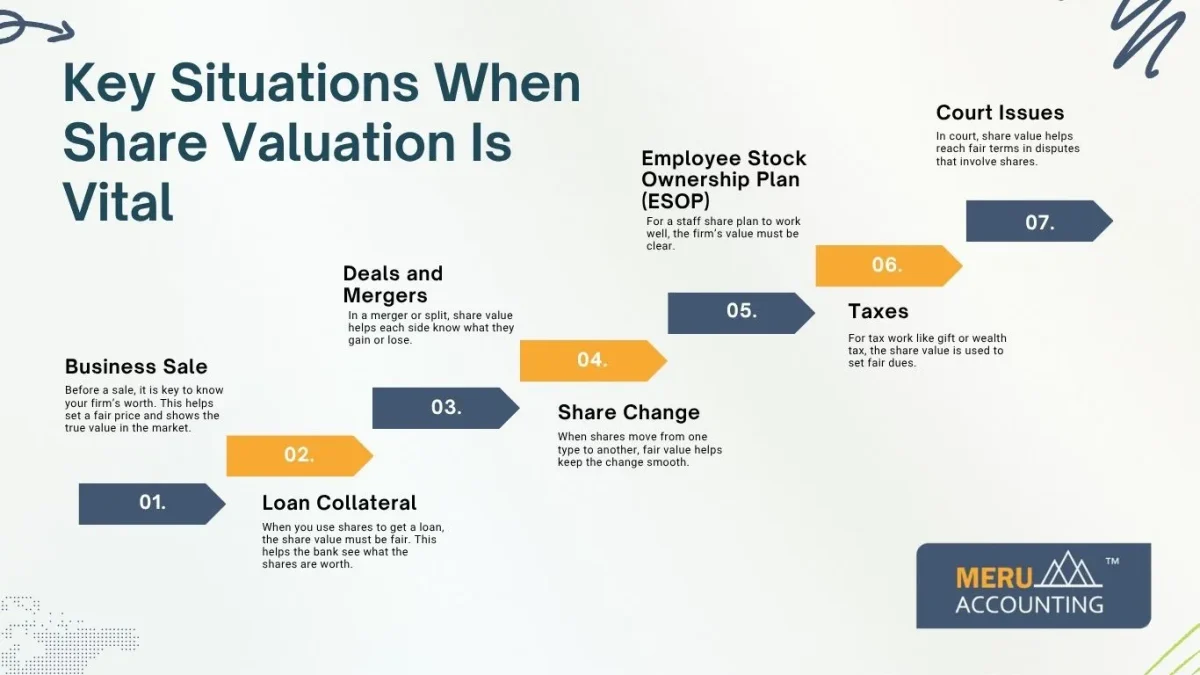
- ABOUT US
- Who We are
- Testimonial
- Why Meru Accounting?
- Core Values
- OUR SERVICES
- Bookkeeping Service
- Tax Return Services For Business Owners
- Cloud Addons Integration
- Backlog Cleanup Service
- CPA firms
- Payroll management
- CFO-services
- Company Set up Services
- Move To Digital
- Power BI Reporting for Financials
- Receivables Management
- Tax Services
- Bookkeeping for CPA’s
- Dedicated staff
- Odoo Development/Customization and Bookkeeping
- Payables Accounting
- Convert to Xero
- Valuation Services
- Grow your Business
- Power BI and Google looker studio reporting
- SOFTWARE SPECIALIZATION
- Xero
- odoo Development/customization & Bookkeeping
- Sage
- Wave
- Net Suite
- Clear Books
- Zoho Books
- Accountmate
- BillQuick
- Saasu
- FreshBooks
- Sage Intacct
- Yendo
- Oneup
- Deskera
- ZipBooks
- INDUSTRIES EXPERTISE
- Education
- Construction
- Franchise
- Gems & Jewellery Exporters
- Lawyers
- IT Sector
- Mining
- Manufacturing
- Pharma
- Non-Profit
- Physician
- Amazon Sellers
- Aged-Care
- Advertising
- Farming
- Transporatation
- Rental
- Power & Infrastructure
- Travel & Tourism
- Trading Firms
- Wholesale
- Antique Stores Industry
- Grocery stores
- VIRTUAL ASSISTANT
- Virtual Assistant for Real Estate
- Virtual Assistant for Digital Marketing
- Virtual Assistant for E-commerce Business
- Case Study on Web Scrapping
- careers
- Current Openings
- RESOURCES
- Blogs
- EMI Calculator
- Compound Interest Calculator
- Whitepapers
- E-BOOK
- Manuals
- SIP Calculator
- Business Entity Selector
- Generate free management report
- Case Studies
- Video Channel

- ABOUT US
- Who We are
- Testimonial
- Why Meru Accounting?
- Core Values
- OUR SERVICES
- Bookkeeping Service
- Tax Return Services For Business Owners
- Cloud Addons Integration
- Backlog Cleanup Service
- CPA firms
- Payroll management
- CFO-services
- Company Set up Services
- Move To Digital
- Power BI Reporting for Financials
- Receivables Management
- Tax Services
- Bookkeeping for CPA’s
- Dedicated staff
- Odoo Development/Customization and Bookkeeping
- Payables Accounting
- Convert to Xero
- Valuation Services
- Grow your Business
- Power BI and Google looker studio reporting
- SOFTWARE SPECIALIZATION
- Xero
- odoo Development/customization & Bookkeeping
- Sage
- Wave
- Net Suite
- Clear Books
- Zoho Books
- Accountmate
- BillQuick
- Saasu
- FreshBooks
- Sage Intacct
- Yendo
- Oneup
- Deskera
- ZipBooks
- INDUSTRIES EXPERTISE
- Education
- Construction
- Franchise
- Gems & Jewellery Exporters
- Lawyers
- IT Sector
- Mining
- Manufacturing
- Pharma
- Non-Profit
- Physician
- Amazon Sellers
- Aged-Care
- Advertising
- Farming
- Transporatation
- Rental
- Power & Infrastructure
- Travel & Tourism
- Trading Firms
- Wholesale
- Antique Stores Industry
- Grocery stores
- VIRTUAL ASSISTANT
- Virtual Assistant for Real Estate
- Virtual Assistant for Digital Marketing
- Virtual Assistant for E-commerce Business
- Case Study on Web Scrapping
- careers
- Current Openings
- RESOURCES
- Blogs
- EMI Calculator
- Compound Interest Calculator
- Whitepapers
- E-BOOK
- Manuals
- SIP Calculator
- Business Entity Selector
- Generate free management report
- Case Studies
- Video Channel
Home » What we do » Valuation Services
Valuation Services

- CPA Firms
- Enrolled Agents
- Bookkeeping Firms
- Tax Practitioners
- Business Owners

- Free Trial for First month Bookkeeping services worth $95
- Get Monthly Financial Statement( Click here )
- Dedicated Accountant with Backup person for each Business
-
Latest Infrastructure with Great IT security
( Virtual Tour to our office )


Business Valuation Services
Knowing what a company’s shares are worth is called share valuation. Valuation services help determine the fair value of assets, shares, or businesses for deals, tax, or legal n eeds. This task can be complex and often involves many steps and figures. Using expert valuation services ensures a more reliable and unbiased assessment process. Share value can shift due to supply and demand changes in the market. For listed firms, their share price is clear. But for private firms, finding share value is more complex. This complexity makes it important to seek business valuation services near you, especially from professionals with experience in evaluating private companies. This needs a deep look at the firm’s health, trends in its field, and other key points.
The value of share valuation is high, as it helps firms make smart calls. It is key when a firm plans to sell, use shares for loans, or take part in big moves like mergers or a change in control. It also plays a role in plans like ESOPs, tax work, or legal issues. In short, if you are in the process of a key move or deal, you need to know the real worth of your shares.
Key Situations Where Share Valuation Needed

- Business Sale: Before a sale, it is key to know your firm’s worth. This helps set a fair price and shows the true value in the market.
- Loan Collateral: When you use shares to get a loan, the share value must be fair. This helps the bank see what the shares are worth.
- Deals and Mergers: In a merger or split, share value helps each side know what they gain or lose.
- Share Change: When shares move from one type to another, fair value helps keep the change smooth.
- Employee Stock Ownership Plan (ESOP): For a staff share plan to work well, the firm’s value must be clear.
- Taxes: For tax work like gift or wealth tax, the share value is used to set fair dues.
- Court Issues: In court, share value helps reach fair terms in disputes that involve shares.
- Investment Company Holdings: Groups with shares need to know what their stakes are worth to plan well.
- stakes are worth to plan well. Public Sector Buyouts: If the state takes over, share value is key to paying owners fair sums.
- Listed Shares: Even in the stock market, a large share deal may need a fair value check beyond the price shown.
Selecting the Method for Share Valuation
The best way to value shares will depend on the case. At times, more than one method helps give a full view. Here are some key ones:
1. Asset-Based Method
This method is used when a firm owns many real things. It works well when a firm shuts down or when firms merge. The net worth (assets minus debts) helps set the share value.
2. Income-Based Method
This method has two main forms:
- Discounted Cash Flow (DCF): This uses future cash flows and brings them to present terms to find the share worth.
- Price Earnings Capacity (PEC): This looks at past gains to set value. This works for firms with steady gains but may not fit young firms.
3. Market-Based Method
This method checks the value of like firms with shares in the market. For firms in the same field, this gives a good base for share value.

What Is Asset Valuation?
Asset valuation is the process used to find out what a firm’s goods are worth. These goods, known as assets, can include stocks, bonds, land, tools, machines, or even brand names and patents. It plays a major role in many parts of business life. Asset valuation is key when firms are bought or sold, merge with others, or need to check their own worth for tax or legal use. It’s also vital when firms apply for loans or need to report their value to investors. Professional business valuation services are essential in such cases to support financial decisions with confidence.
Some items are easy to price. For example, land and buildings often have clear market rates. Stocks and bonds also have listed values, making them simple to assess. But other types of assets, like trademarks, brand image, or tech rights, are more complex. These are called intangible assets. Their worth depends on many factors, like how well-known the brand is, how long a patent lasts, or how much profit it could bring in the future.
Asset valuation becomes more involved when liabilities—what the firm owes—are also considered. These may include loans, unpaid bills, or tax dues. To know a firm’s full value, you subtract these debts from its total assets. This gives what’s known as net asset value. A clear view of this number helps both owners and outside parties make smart choices about the firm’s future.
Expert firms offering accounting services in USA can handle these evaluations with precision and regulatory awareness. The results give a snapshot of where the firm stands. In fast-changing markets, this helps owners make better plans. With trusted valuation services, the process becomes smooth and more precise.
No matter the size of the business, knowing the value of both fixed and moving assets is key. Reliable business valuation services can support firms in evaluating assets accurately for both planning and compliance. If you want business valuation services, a firm that offers accounting services in the USA can give clear asset values and help you make smart choices.
1. Historical Cost Method:
2. Market Value Method:
3. Base Stock Method:

4. Standard Cost Method:
The Standard Cost Method departs from actual costs and relies on anticipated costs, often derived from the company’s historical experience. It involves recording variations between expected and actual costs, offering a forward-looking perspective on asset valuation.
Each method fits a different case, and the right business valuation services provider can help identify the best approach. Firms that want good business valuation services must pick the right one based on the type of asset and use. A trusted provider offering accounting services in USA can guide this choice with skill and care.
Why Choose Meru Accounting?
Meru Accounting is a top name for valuation services. We help firms know what their shares and goods are worth. Whether you’re navigating a merger, preparing for a loan, or managing a compliance matter, Meru Accounting offers business valuation services near you with reliable insights and proven methods. If you seek business valuation services or need help with assets, we give you a clear, fair view.
Here’s why firms trust Meru Accounting:
- Skilled Team: We have years of skill in business valuation services and deal with tough tasks with ease.
- Wide Skillset: Our team uses all key methods to fit your case.
- Unbiased Work: We are not tied to any bank. This means our work is fair and clear.
- Custom Help: We offer plans that suit your needs, from small firms to big ones, whether you want accounting services in the USA or help with a key deal.
- Top Results: We use strong ways to check value and aim for high quality.
- Client First: We aim to serve well and keep our clients happy with our work.
- Client satisfaction: Meru Accounting is committed to providing clients with outstanding service. We have a high rate of client satisfaction.
Conclusion
Share and asset valuation is crucial for events like business deals, mergers, tax planning, or legal issues. Engaging with professionals who provide business valuation services near you ensures accessible support and a deeper understanding of your regional business environment. Share prices often change due to shifts in the market, and private firms need a deeper check beyond listed rates. A detailed review with trusted valuation services ensures fair value, helping owners, buyers, or courts make sound choices. This is why accurate valuation services are a must for firms seeking to understand true worth.
Meru Accounting offers expert support for valuing shares, firms, land, tools, and brand assets. Our team works with care and skill, free from bias, giving results that reflect true value. We take time to learn each client’s needs and provide custom help that fits each case. Whether you need valuation or accounting services in the USA, Meru Accounting provides a one-stop solution.













































































